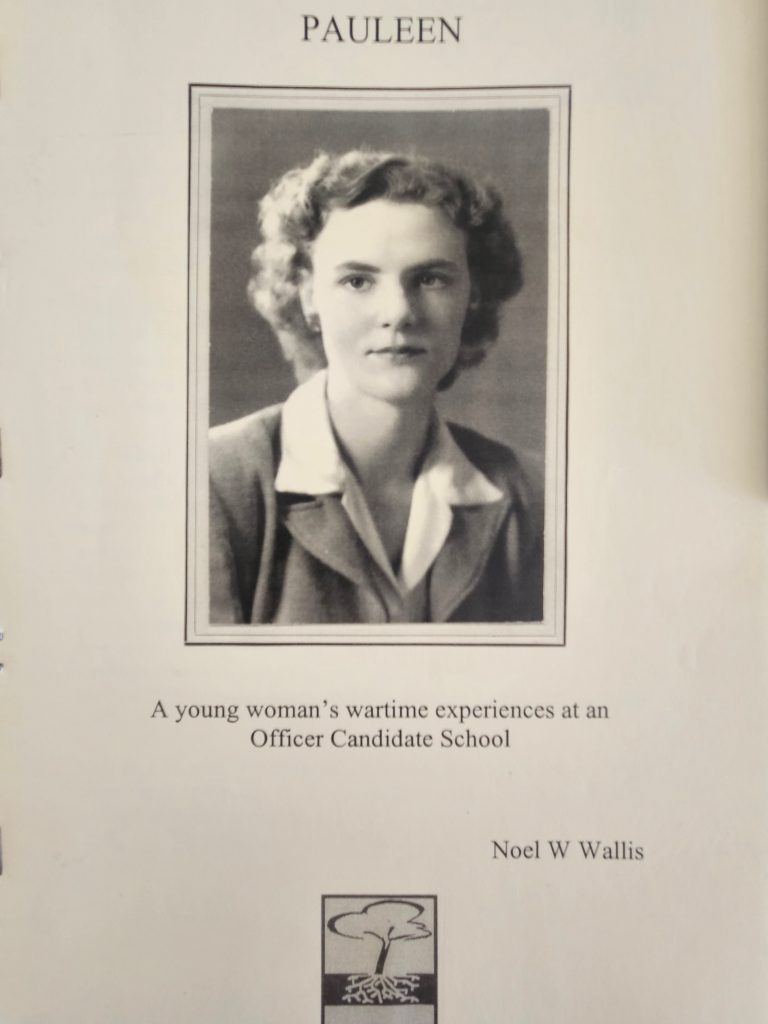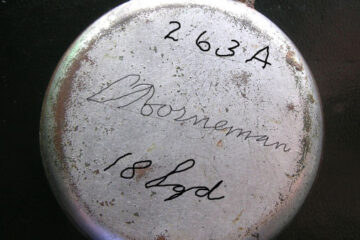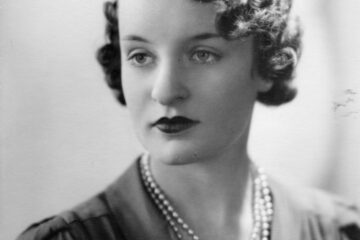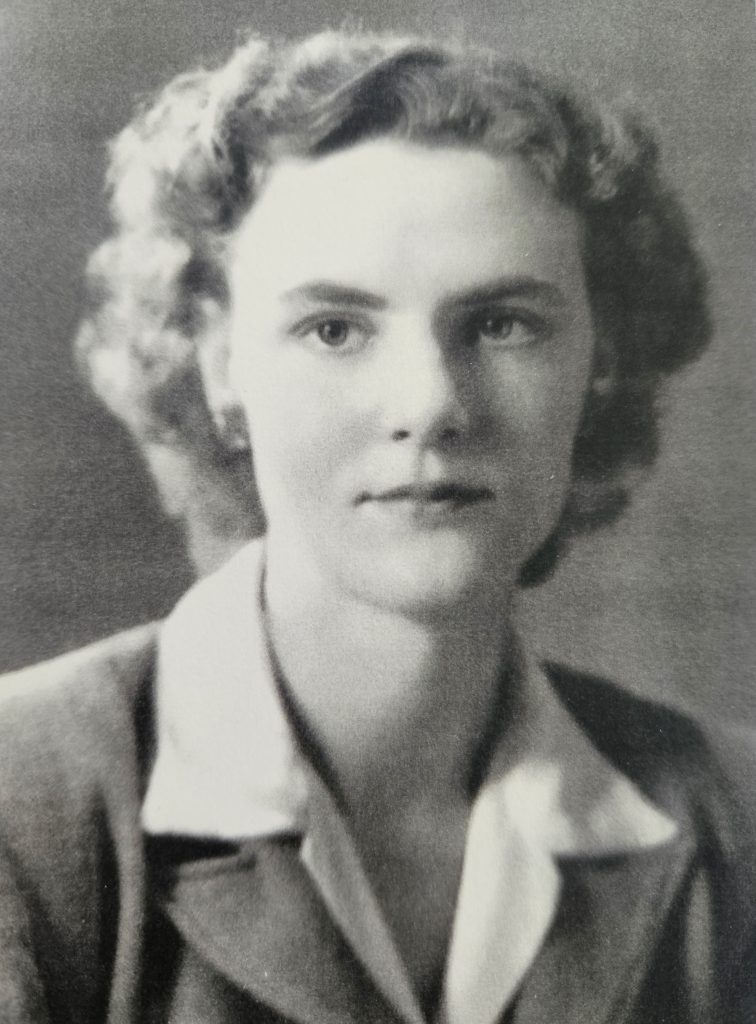
Pauleen Lillian Badke was born at Booval in Ipswich in 1925. Her father’s name was ‘Wilhelm’ but he was known to everyone as ‘Bill’ – her mother’s name was Lillian. She had one brother, Keith. Bill was well known in Ipswich and surrounds as a building contractor, and for his love of harness racing – he bred and raced trotters.
Pauleen attended the Silkstone State Primary School, and later the Ipswich Technical College. Here she learnt the skill of shorthand/typing that stood her in good stead for what lay ahead at the Officer Candidate School during World War II.
The American army administration had established a fairly large camp at Wacol in the south-west district of Brisbane by the beginning of 1942 which they named ‘Camp Columbia’.
Towards the end of 1942 plans were well advanced for part of Camp Columbia to be established into what was to be the ‘OFFICER CANDIDATE SCHOOL – O.C.S.’, and it was here in July of the following year that Pauleen found herself as one of the female civilian personnel employed at the O.C.S. It must be remembered that she had just reached the age of eighteen years and was a ‘country girl’ at heart as were most of the local young people at this time.
First, she needed to sit for an examination at Somerville House where the Americans had one of their headquarters, and to be interviewed personally at the O.C.S. As a result, she was offered a position as a clerk in the Operations sections.
Pauleen was accompanied by her mother to the interview appointments, but from 13th July she was on her own! That morning she had travelled by train to Wacol station and walked slowly up the main road towards where she believed she had to report. Not knowing exactly where to go she asked a gentleman dressed in army uniform with a baton under one arm. He pointed and said, ‘Up there on the hill’, and she thanked him with the nod of her head. Pauleen did not know then that the ‘gentleman in uniform’ was none other than Lieutenant Colonel George Privett one of the three top officers of the camp. It was rather an informal introduction to a fairly strict disciplined job for two years.
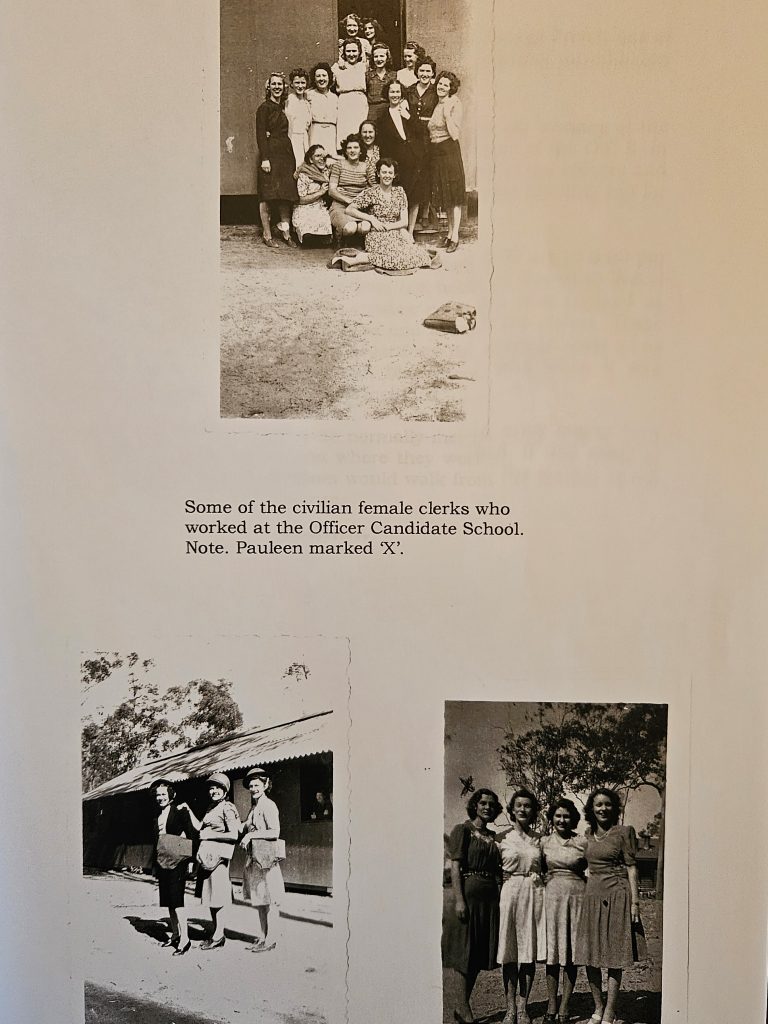
There were other female civilian ‘clerks’ (twenty-one in all) working at the 0.C.S., and their names are recorded in the final report of the O.C.S. in June 1945 that Pauleen typed – along with the names of the officers and staff at the School. (These names are available for private scrutiny but for privacy reasons they are not stated here).
The hours of work for the young female clerks were 8.00 am to 5.00 pm for a six-day week. Pauleen travelled from her home at Booval to Wacol railway station by steam train with wooden carriages that creaked as they moved from side to side on the line and around the curves. These were the days when you brushed coal dust from the carriage seats so as not to have your clothes marked with black soot, and when it was literally ‘smoke gets in your eyes’ – soot included.
Civilian employees of the camp were normally met by army bus or staff car and transported to the section where they worked. If this mode of transport was not available, Pauleen would walk from the station to the O.C.S., which wasn’t a great distance.
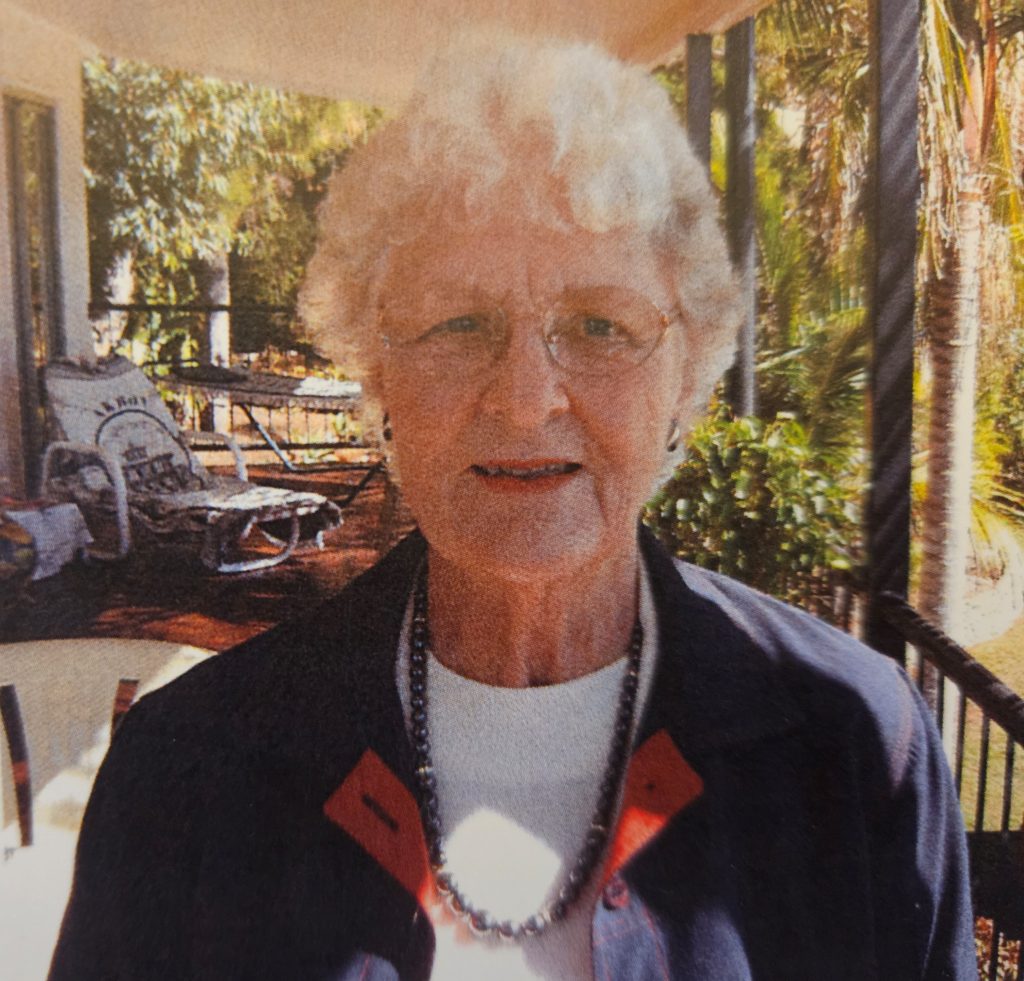
This profile on Pauleen and the pictures are from the publication “Pauleen a young woman’s wartime experience at an Officer Candidate School” The author is Noel W Wallis and it was published by the Richlands, Inala and Suburbs Group Inc. A copy of the publication was donated by the Group to the Camp Columbia Heritage Association.
After the war Pauleen met RAAF officer, James Dean Casos. They married in 1948. Pauleen passed away peacefully on 6th November 2022, aged 97 years.
Below are reference letters she received at the end of her service at the Officer Candidate School.
The book “Pauleen a young woman’s wartime experience at an Officer Candidate School” also includes personal memories of her time at the School. This is how they have been written down by the author Noel W Wallis.
